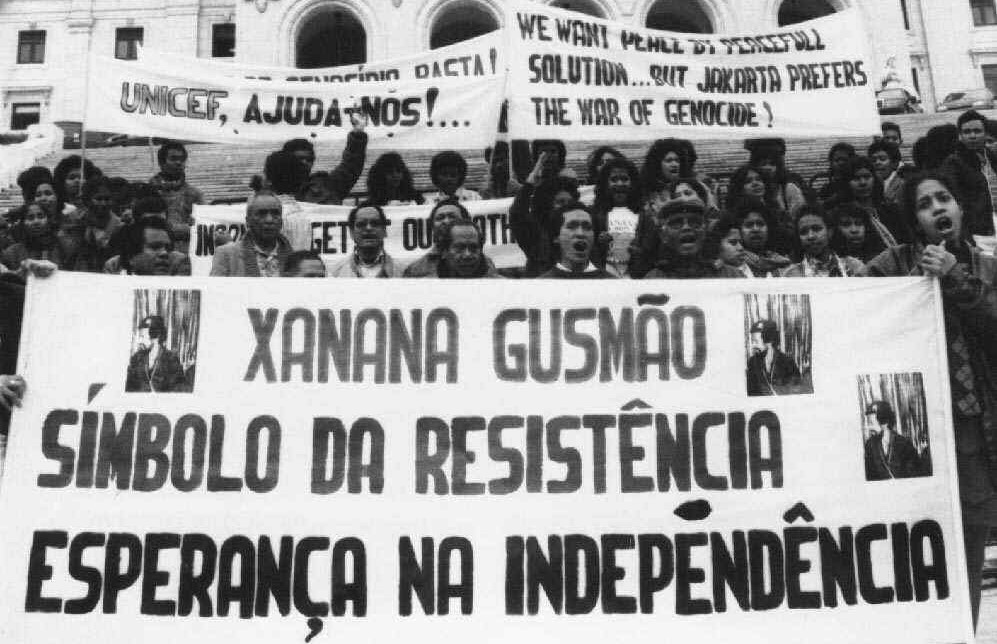novembro , 2018

Detalhes do Evento
Marking the anniversary of East Timor's Declaration of Independence, this conference aims to place East Timor's decolonisation into its historical context. O Longo Processo de Autodeterminação de Timor-Leste: Conjunturas, Eventos,
Ver mais
Detalhes do Evento
Marking the anniversary of East Timor’s Declaration of Independence, this conference aims to place East Timor’s decolonisation into its historical context.
O Longo Processo de Autodeterminação de Timor-Leste:
Conjunturas, Eventos, Actores (Inter)Nacionais
[The long process of East Timor’s self-determination: Contexts, Events, (Inter)National Actors]
With the Carnation Revolution on 25 April 1974, the first step was taken in the long and troubled process of East Timor’s self-determination. In the following year, efforts to find a solution accepted by the representative organisations of the East Timorese failed badly, and occupation of the territory by forces of the Indonesian Republic which took place on 7 December 1975 was to last 24 years. In the light of international law, East Timor remained a “non-autonomous territory under Portuguese administration”. And the Constitution of the Portuguese Republic was committed to guaranteeing a process of true self-determination for Timor. Until on 30 August 1999, a “popular consultation” organised under the auspices of the UN would give free voice to the Timorese, who chose the path of National Independence. This long process unfolded in Timor and Portugal, Indonesia and the UN, and in the world public opinion and networks of solidarity. It involved politicians and military, diplomats and civil society activists. It has mobilized mass media and goodwill around the world.
After more than 15 years of the proclamation of Independence (20 May 2002), it is time to look dispassionately at the whole process, particularly for the ramifications it had in Portugal. That is why this conference privileges the testimonies of those who have had, at some point, both official responsibilities and the mobilisation of public opinion, without neglecting an analytical perspective that helps put East Timor’s decolonisation in its historical context. Now that the passions have given way to more thoughtful and reflective attitudes, it is time to go beyond preconceptions and to investigate the advances and retreats, the relevant contingencies and milestones, the role of men and the constraints that have so often in stopping the process. The fact that the process has had a “happy ending” is an additional reason for his troubled history to be made with the greatest rigour.
Scientific coordenination:
Pedro Aires Oliveira (IHC – NOVA FCSH)
Rui Feijó (IHC – NOVA FCSH and CES – University of Coimbra)
Programme:
OPENING LECTURE
Jorge Sampaio | Timor nas memórias de um Presidente da República
SESSION 1
Norrie MacQueen | Victim of the System? Timor-Leste and International Politics since 1974
David Hicks | Were the tragic events of 1975 inevitable?
SESSION 2
EAST TIMOR ON THE PORTUGUESE SOVEREIGN INSTITUTIONS
Adelino Gomes | Os primeiros passos do caso de Timor no acervo da EPHEMERA (espólio do Conselheiro da Revolução Major Sousa e Castro)
Carlos Gaspar | O processo de autodeterminação de Timor visto da Presidência da República
Fernando d’Oliveira Neves | O Acordo de 5 de Maio de 1999: uma negociação implausível
SESSION 3
THE CASE OF TIMOR IN NATIONAL AND INTERNATIONAL CIVIL SOCIETY
Round-table with António Barbedo de Magalhães, Arnold Kohen, and Robert Archer
Free admission, subject to registration HERE.
Photo: East Timorese and Portuguese protesters during a protest against the Indonesian occupation of East Timor
in front of the Assembly of the Republic in Lisbon. Arquivo & Museu da Resistência Timorense (Source)
Tempo
(Quarta-feira) 10:00 am - 6:00 pm
Organizador
Institute of Contemporary History at NOVA - FCSH and Fundação Oriente
